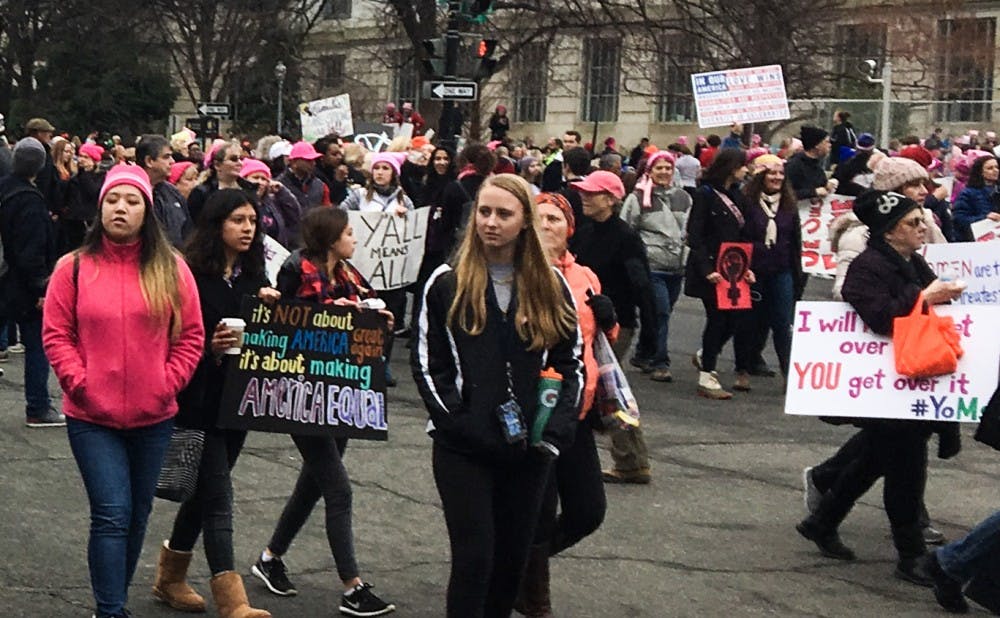Duke community members made their way to Washington D.C. this weekend for two very different events—President Donald Trump's Friday inauguration and the Women's March on Washington the next day.
Among those who attended Trump's inauguration were first-year Jake Chasan and junior Colin Duffy, both of whom support the new Republican president.
Chasan said he believes that being in D.C. for inauguration weekend was a rewarding experience.
“I have friends who came to Washington D.C. to attend the inauguration and others who came to the Capitol in protest," he wrote in an email. "This is democracy, the ability for people to share their opinions. Without this, America would not be 'land of the free, home of the brave,' in the words of our 'Star-Spangled Banner.'"
Duffy, who is chair of the Duke College Republicans, wrote that he was inspired by many Trump supporters whom he met and who come from all walks of life. The people who stood next to him at the ceremony, he wrote, included "a gay pilot from Missouri, a school teacher from Tennessee and a Latino husband and wife."
To Duffy, one of the most inspiring parts of Trump's speech were his references to the "forgotten men and women," and the hope that the speech could start the country on a path of unification.
“While coming from different identities and perspectives, they all shared a beautiful vision of hope and pride in their country," Duffy wrote. "A lot of them said this was the first time they had a politician who truly stood up for them."
But Saturday featured the Women’s March on Washington, which drew in a crowd of about half a million in protest to the inauguration the day before. Although Duffy and Chasan attended the inauguration out of a sense of optimism, other students and faculty attended the marches to overcome feelings of powerlessness and despair.
Marion Quirici, a lecturing fellow at the Thompson Writing Program, was among the march's attendees. Quirici said the march created an environment that empowered a large number of citizens to actively protest the Trump administration.
“Every time we turned a corner, there were more people—more creativity, more love," Quirici said. "It was all incredibly peaceful and positive, and I can't describe the feelings of hope each time I entered a new area of the protest."
First-year Victoria Grant said she was pleased the march fostered a sense that change was possible, and first-year Niyah Shaheed said she believes the march's worldwide influence would help reaffirm America's global image.
“I thought the march definitely achieved its purpose of showing the American people and the rest of the world that the bigotry and hate surrounding Trump's campaign wasn't representative of the attitudes of most people in this country and that we would actively fight to keep this bigotry from prevailing," she said.
The march's attendees should fight for everyone's rights, said first-year Alexandra Kunzle, such as those of marginalized women. Quirici agreed, arguing that it is imperative to sustain the movement in the long run and not just fizzle out after one march.
“I am so encouraged and impressed that so many people turned out for marches all over the world this weekend," she said. "But it isn't enough to listen to Ashley Judd and be entertained by Alicia Keys."
Correction: An attribution was changed to properly attribute a quote to Duffy, and not Chasan as the article originally stated. The Chronicle regrets the error.
Get The Chronicle straight to your inbox
Signup for our weekly newsletter. Cancel at any time.

